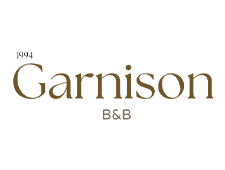NOMAD AFRICA TOURS & SAFARIS: Nomad Team Keeps the Dream Alive for Real African Tourism
After working hard to ensure the brand remained viable through the toughest of challenges that was the pandemic, Nomad Africa Tours & Safaris is again taking tourists across the continent, to real Africa, to understand all that is awaiting off the beaten track. It has been a business challenge like no other, but Owner Alex Rutherford has managed to rebuild and recoup as the market returns and the outlook becomes more promising. He talks to Enterprise Africa about the challenges in tourism in the post-pandemic world.
The race is on in southern Africa’s tourism game. Once a darling of the region, with millions of foreign visitors flooding in to witness Africa’s beauty first hand, the Covid-19 pandemic slammed the doors shut. International visitors were forced to stay away, and even if they could have touched down in SA, tours around the region halted with borders to neighbouring countries closed.
14.8 million people entered South Africa in 2019. Just 3.9 million arrived in 2020. Inbound tourism expenditure tumbled by more than 70% and domestic tourism spend fell by almost 33%. The tourism contribution to South Africa’s economy fell from 3.9% to 2.2%, and more than 320,000 jobs were shed by the industry.
To be active in the space was very hard. “We took a thrashing, it was total decimation,” says Alex Rutherford, Owner of Nomad Africa Tours and Safaris.
Back in 2019, he told Enterprise Africa that the company was buoyant in a booming sector as access to South Africa and Africa was better than ever before. He was planning new routes, and helping to ensure that money was not a determining factor around who could experience Africa in all of its glory. By ensuring fair pricing, everyone from anywhere could talk to Nomad about travel in Africa.
But now there is a fresh challenge – restoring the company as a leader in the industry, rightsizing to meet the needs of a new niche. Thankfully, Rutherford has spent half of his life building the company and has taken knocks in the past. If anyone can rebuild, it’s the Nomad team.
SIMPLY IMPOSSIBLE
“We stopped operating mid-March 2020 – we work cross border and so it was simply impossible. We didn’t run a single person for 18 months,” he remembers, highlighting the fact that the company kept senior people and paid staff for as long as was possible, while refunding all customers at the same time. “We were essentially in the red for three years. We had to crowdfund, we had to sell assets, we had to scratch and scrape.”
However, in every crisis there is opportunity. The hard work the company put in during the darkest of times allowed the brand to thrive. Employees, suppliers, partners, and stakeholders recognised the genuine and sincere approach taken by Nomad. The result? As soon as movement returned in early 2021, Nomad was top of mind. The company was able to deliver memorable experiences, and word-of-mouth spread – while others remained closed or grappling for fast turnaround, Nomad is ready to roll.
“The last six months have shown a good steady improvement – but nowhere near pre-Covid. We had to reduce our capacity and drop our fleet by 60% so we cannot offer what we used to. But, there has been an exponential climb. There is less availability from competitors so we are in a strong position,” Rutherford details.
“Others mothballed and they were not available – you could not phone the office. We stayed open, we kept in touch, and we kept up our outreach. That has stood us in fantastic stead as faith in the brand has gone through the roof.”
Today, the company has 30 people at head office, and 60 guides in the field. Nomad staff are experts in African travel. Taking guests anywhere and everywhere, from Cape Town to Kampala, and Kamanjab to Praia do Tofo, Rutherford is certain that the team is the best.
“The quality of the people I have with me is the strongest in the world in terms of our industry,” he states. “The collective knowledge and experience is remarkable. Our team knows every bump in every road in sub-Saharan Africa. They are not office consultants, and utilising their skills is exciting. My people can tell you the name of the shop on the corner of the road in the middle of nowhere – because they have been there. They can talk honestly about any concerns people have around malaria or drinking water or whatever it might be.”
The majority of the team have been with Nomad for more than a decade, and they are happy to share their experience with new faces as the company progresses.
“The next 12 months is about monitoring it – is this a surge or is this the new position? We need to understand what we’re doing and if it is stable before we plan to grow again. Getting back to full swing is important and our team will drive that. We have to make sure the tours run to the standard we expect and we are getting back to being a well-oiled machine.”
STRONGER THAN THE REST
Nomad offers three key service lines: Scheduled tours which are Nomad branded; group tours, which is like a charter department run under other brands; and the tailor-made tour department for smaller groups or families.
Traditional tours load up into a purpose-built Nomad vehicle and travel by road to campsites, lodges, and hotels, taking in ‘real Africa’. The concept behind the company comes from Rutherfords on frustrations travelling across the continent. He completed a trans Africa trip and found it incredibly difficult to organise, with many failings from companies along the way. “I knew it could be done better, and I established Nomad in 1997.”
He says that the number of departure dates provides real flexibility for customers, and this is a differentiator. “Our strength is that we have a unique system with great logistics – very few other companies do it – we can run camping and accommodate tours at the same time. We have partnerships with lodges and hotels, and we can camp on the same trip. It gives us the ability to provide more flexibility and that gives us more dates. We have the most dates by far. We run the most departures even now, after Covid. At one point, we had more than 100 different tour options that we operated, with 800 departures per year.”
This flexibility alongside a careful focus on competitive pricing ensures strong new and repeat business. Rutherford describes relationships with clients as ‘powerful’, and he remains confident that the majority will return or recommend.
“Around 25-30% of our business is repeat – a huge amount of people come back to us and that is great. I have people who have completed 10 trips with us. I have people who have toured with us, gone away, and come back with their children.
“We have age on our side. In the past I would have laughed at a comment like that, but we now have 25 years behind us. We are recognised and our ratings are amongst the highest around.
“We have never become corporate. The way we interact with clients is the same as it has been for years – it’s intimate. Our staff come to work in shorts and flip flops – that is great and clients appreciate it.”
BOOMING MARKET?
The expectation from industry bodies, including South African Tourism, is that the sector will thrive in coming years, even against the backdrop of weak economic performance and withering infrastructural conditions locally. In the three months from end of December 22 to March 23, in the Western Cape alone, 167,000 jobs were created and filled as tourists came back to Cape Town and the winelands for the summer weather and affordability. As this rebound continues, quality service provision will be essential to attract travellers.
“Some companies out there are running 20-year-old vehicles. We run it on the basis of cost – as soon as it goes wrong, we get rid and get a new one, and that makes the client experience better,” says Rutherford, highlighting dependability and consistency around quality standards. “Our breakdown average is one per 120,000km. A breakdown for us is if you turn the key and the vehicle doesn’t go – the customer cannot be made to wait. We monitor it religiously and as soon as there are signs, the vehicle must go.
“It’s not the time for major risk,” he adds. “We have noticed that there are changes in the market and we are repositioning to be able to handle that. We are getting more group enquiries because there are less players in the market able to satisfy that demand.”
In 2022, tourist arrivals in SA were 153% higher than 2021. Domestic tourism registered a 100% uptick in the first six months of 2022, but thousands of businesses closed doors. For Nomad and other survivors, the ongoing rebuild will require care and responsibility.
“I now have people going to overseas markets to drive new business – you cannot cut marketing in a sales industry. Often, we are the only ones at these shows, and that is great. We are back in the black and the team is very ambitious,” details Rutherford.
“I will never become a mainstream bus operator. We are trying to get people into unusual, remote places to experience Africa but to do that you have to know what you’re talking about. I have a dream team and it has been built over a long time.”
Nomad’s dream team brings journeys to life. Not just Table Mountain or Kruger Park or Victoria Falls. Booking with Nomad gets you everything in between and presents a chance to do what others simply do not. This part of the world has something for everyone, and this is a business that knows how to show it off.
“Reputation, pricing, availability, and options is what separates us,” Rutherford concludes.


